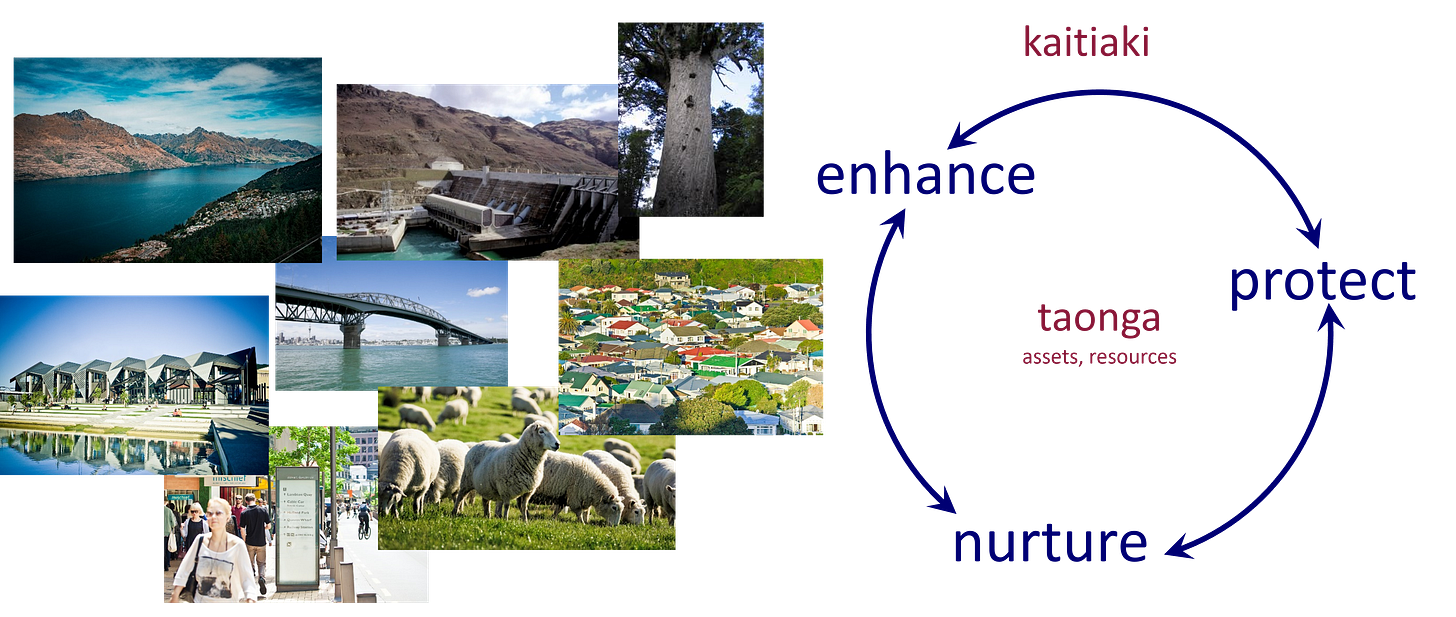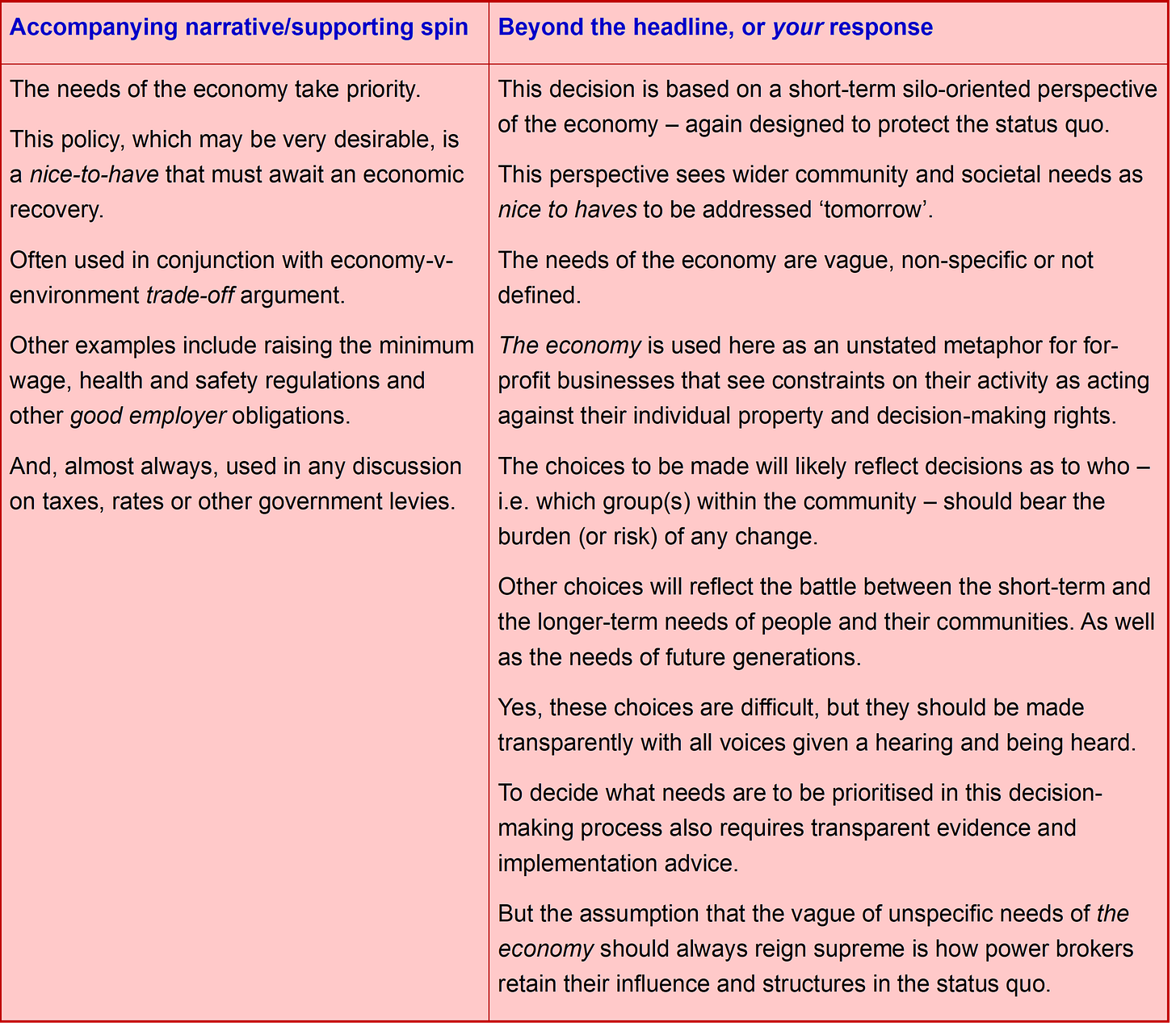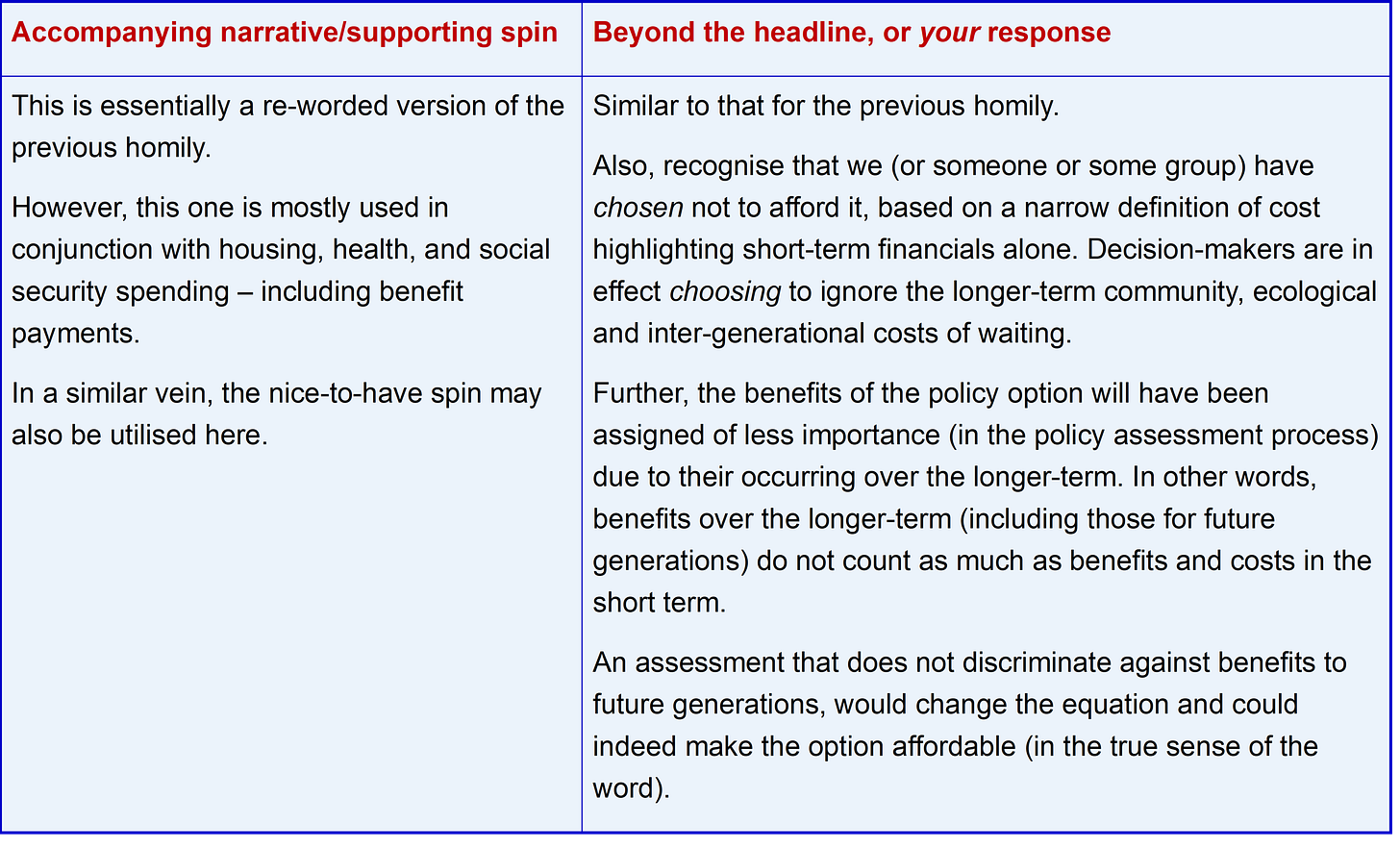With a Monetary Policy Statement and the Government’s Budget to be announced over the next couple of weeks, expect a plethora of commentary on the economy. Some of it will be worthy. But much of it will be from vested interests designed to protect their power and minimise any disruption to the status quo.
Consequently, much commentary will be designed to perpetuate the view that the economy is the priority and its needs must be served and protected. Other commentary will just reflect a lazy understanding of economics.
While the broad contents of Budget 2024 have been well-signalled, do watch out for decisions that (again) favour short-term choices in the face of longer-term challenges. One that may appear is a deferment of the Government’s annual contribution to the New Zealand Superannuation Fund (aka the Cullen Fund). This has been done before and puts an easy $1.5bn-2bn per annum up for grabs. Additionally, watch out for loosening of the ‘financial hardship’ criteria for access to KiwiSaver funds. This will be framed in the context of assisting New Zealanders to meet the cost-of-living crisis.
Such decisions, should they eventuate, will signal yet another victory of short-term ‘prudent fiscal management’ over the longer-term requirement for active economic governance providing a direction for Aotearoa in the 21st century.
This short-term v long-term battle is further reflected in the tables below where I list some soundbites (homilies) you are likely to hear. For each, I note the likely accompanying narrative and supporting spin. And, in each case, I suggest an appropriate response designed to draw out the narrowness and self-serving nature of the understanding of the economy they wish to perpetuate.
The objective is to overturn the narrative that the needs of people and communities are subservient to those of the economy. The replacement needs to be a clear and unapologetic narrative that prioritises the needs of people and their communities and makes the economy subservient to those needs.
To those who believe this to be politically partisan I note that each of the homilies below (and more), along with the associated narratives, have been used by all political parties when in power over the last 40 years. Their ongoing use reflects the success of the 1984 experiment – a dominant narrative designed to limit and neuter the role of government in our economy and, ultimately, render it impotent.
For progress, the language of the status quo needs to be tackled. Hence, a central task is to proffer a sounder perspective for the query: what is the economy?
To assist, I refer to two depictions of the economy. While both are equally valid, they illustrate contrasting perspectives on what is the economy.
The first picture depicts an economy with a focus on using (or extracting, exploiting and expending) productive resources to produce outputs for consumption. This conventional perspective underpins the narrative that the success of an economy is measured by the quantum of output it can produce for consumption. In addition, some output must also be used to replenish the resources that are used up. This view supports GDP as the primary indicator of an economy’s health.
In contrast, an economy can be viewed as centred on the protection and improvement of the resources available to people and their communities. Such a perspective is consistent with an inter-generation lens and sees the primary role (objective) of an economy as securing resources from which future prosperity can be enjoyed. Such a depiction would indicate measures of the health, viability, and sustainability of resources would be feature prominently in assessing the state and success of the economy.

Irrespective of which depiction you are comfortable with, we really do have to stop talking about the economy as if it were a living being.
Importantly, understand that the economy is an inanimate construct designed by people and their communities to guide economic activity. In particular, society writes the rules and sets the range of acceptable behaviours under which economic activity is permitted to be undertaken. Further, economic activity is broadly defined as activity that engages, improves or depletes any resources for the production of goods and services.
Consequently, the economy – and the rules for allowable economic activity – can be modified, redesigned, and/or redirected by people and their communities, to adjust to changing context, challenges, ethics and objectives.
An active economic governance role for the government would explore with Tangata Whenua Maori and Tangata Tiriti – in line with Te Tiriti obligations – an explicit objective for the economy. This objective must go beyond simplistic notions of more output (higher GDP). It must prioritise protecting, nurturing, enhancing, and improving the resources that we have collectively inherited. Where resources include the skills, knowledge, life experiences, and strengths of people and their communities, and the waiora and hauora of te taiao.
In short, an objective that moves us towards fulfilling our obligations to be a good ancestor by acting as kaitiaki of these taonga.
What you will hear: The economy is in recession and we must prioritise its recovery
What you will hear: This (insert option) policy will hurt the economy
What you will hear: We can’t afford it
What you will hear: We must balance the budget
What you will hear: We need to provide relief for New Zealander facing the cost-of-living crisis
[1] Whakamana Tāngata: Restoring Dignity to Social Security in New Zealand, Report of the Welfare Expert Advisory Group, 2019.
What you will hear: We must consolidate surpluses to ensure we are ready for future shocks or surprises
[1] Improving Economic Resilience, Report of Productivity Commission inquiry, February 2024.











